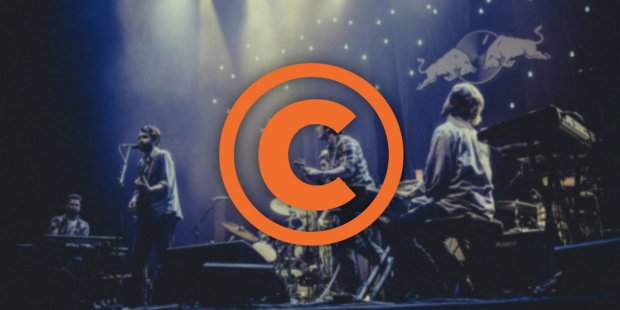 Image via bandzoogle.com
Image via bandzoogle.com
A version of this article originally appeared on Bandzoogle.
There are two distinct copyrightable elements to every recorded piece of music: the musical work (the written arrangements of notes and lyrics) and the sound recording (the physical recording of a performance of that song). So if you record a cover version of a Prince song, you're the creator and owner of the sound recording, and Prince is the owner of the underlying musical work. It's a simple enough distinction, but something that's essential for understanding the ins and outs of music copyright and the music business in general.
For example, performing rights organizations (ASCAP, BMI, SESAC) and the Harry Fox Agency will collect and distribute royalties for your musical works. In contrast, the nonprofit organization SoundExchange will collect and distribute digital performance royalties for your sound recordings (think plays of your track on Pandora and satellite radio). When you register your works with the Copyright Office, your musical works will be listed on a PA copyright form. Your sound recordings will be registered with a SR copyright form. You'll use a © symbol to announce to the world your ownership in a musical work. Your sound recording copyrights get their own symbol, ℗.
Do I need to do anything to have a copyright in my sound recording or musical work?
No. In legal speak, an original work is copyrighted when it's "fixed in a tangible medium of expression." What does this mean in real speak? Your original material is copyrighted the moment you write it down, record it into your iPhone, transcribe it, etc. You don't have to register your work with the copyright office, put a © next to the song title on your lyric sheet, or mail yourself a copy of your record to have a valid copyright.
Should I even bother registering my songs with the Copyright Office, then?
Yes! Filing your musical work or sound recording with the US Copyright Office will still provide you, the copyright owner, with significant benefits. Here are some incentives: if you file a completed copyright form within three months from the release of your work or prior to an infringement, you can recover attorneys' fees and up to $150,000 in statutory damages per violation. Filing will also provide a clear record that you are the true owner.
Think of registration as an insurance policy against possible future unauthorized uses of your work. Timely registration can make or break the financial feasibility of an infringement lawsuit. Registration is relatively cheap ($55), and can be done online. In many instances, one registration form can cover numerous works.
Is there anything I should think about when writing music with someone else?
Copyright law has some special rules for co-writers. When two people sit down with the intention of writing a song, they're usually both owners of the resulting musical work. Copyright law refers to this as a joint work.
As joint owners, both writers can exploit the musical work in certain ways (for example, place the song in a film or advertisement), provided they pay their co-writer a share of the fees. Get that. Each writer can individually license the song without obtaining the permission of the other! You should also know that in a situation where one writer contributes a definable section – for example, the lyrics – the lyricist remains a joint owner of the musical work even if his or her lyrics are later removed.
Although these are some of copyright's default rules for joint works, it's always a good idea for co-writers to enter into a written collaboration agreement. This is especially true if you want different fee splits or rights to apply.
[Who Owns Your Songs? A Guide to Publishing Split Sheets]
Anything to consider when recording and releasing a cover song?
Once artists release their musical works, anyone can create and distribute his or her own sound recording of the work (i.e., release a cover) as long as he or she secures a mechanical license and pays the owner of the musical work a mechanical royalty (currently 9.1 cents per copy of the song).
Although this might sound complicated, it's a fairly painless process that can be done online via Harry Fox Agency or others. As long as you secure that license, you do not need the permission of the songwriter or publisher. And don't forget: when you cover a song, you're the owner of the sound recording. You can register with the Copyright Office. You can stop unauthorized duplications. You can collect the SoundExchange royalties.
But that mechanical license does not cover synchronizing the musical work to video. Meaning? If you want to make a music video or if someone wants to license your sound recording for a film or commercial, you're going to need permission and a sync license from the songwriter or publisher.
Music copyright law can be an intimidating world, even for the well-versed. If you would like to dig deeper, I recommend starting with some of the resources at the US Copyright Office.
Learn more about how to protect your music:
- How to Trademark Your Band Name
- Who Owns That Song? How to Research Copyright Ownership
- 3 Much Needed Copyright Law Changes That Would Help the Music Industry
- Using Someone Else's Music in Your YouTube Video
Beau Stapleton is a music attorney in Los Angeles, CA, representing a diverse collection of clients including producers, managers, artists, publishers, composers, writers, supervisors, music libraries, and digital content creators. Prior to becoming an attorney, Beau was a major label recording artist and the owner of a music publishing company.







